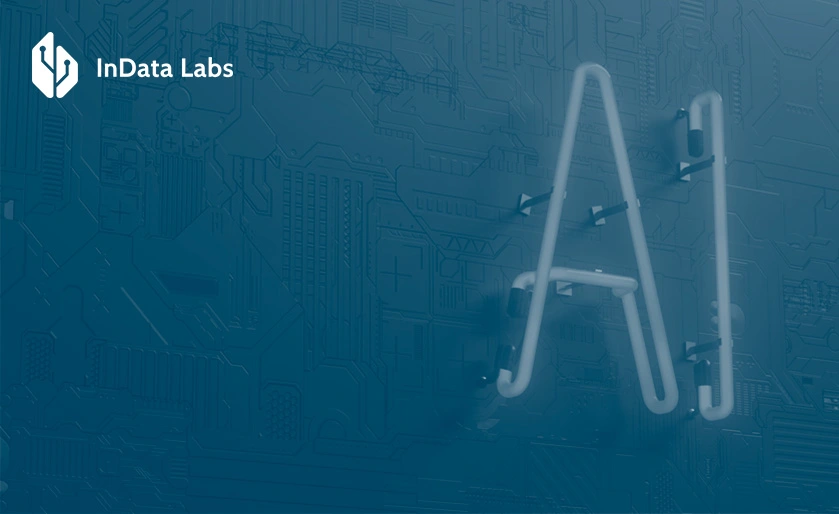Artificial intelligence development has been on the rise in recent years, driving changes in nearly every aspect of business and life. AI exploration has accelerated, opening new AI possibilities and posing new challenges, both predicted and unanticipated.
In this post, we survey the history and current landscape of AI technologies, delve into AI exploration in and the persisting problems within the industry. We also explore artificial intelligence challenges and possibilities, as well as the impact of AI on the world. Additionally, we summarize future expectations and concerns regarding artificial intelligence.
What is exploration in AI?
Artificial intelligence exploration means discovering new data, taking consequent steps, and trying new approaches to boost artificial intelligence performance, improve knowledge and extend possibilities.
What is the concept of exploration?
The concept of exploring AI refers to trying new methods and using new solutions to push AI development further. AI exploration involves delving into a wide range of existing algorithms, apps and techniques to explore new ways of AI design. Trying new ways to code, teach, run and use AI solutions helps gather valuable experience and contribute to the development of artificial intelligence in general.

Source: Unsplash
The landscape of artificial intelligence
Before exploring AI’s particular possibilities and trying to predict its future potential, let’s briefly explore its history and today’s AI landscape.
Brief history of AI development
The concept of AI emerged with the advent of digital computers in the late 1940s, with John McCarthy, often called the “father of AI,” coining the term “artificial intelligence” in 1956 alongside Marvin Minsky, Nathaniel Rochester, and Claude E. Shannon. AI’s development paralleled the IT industry’s growth, marked by milestones such as the 1961 installation of General Motors’ first industrial robot, Unimate, and the 1997 victory of IBM’s Deep Blue over chess champion Garry Kasparov.
Significant advancements continued with Apple’s Siri in 2011, IBM’s Watson winning Jeopardy!, and OpenAI’s release of ChatGPT in 2022, followed by the multimodal GPT-4 in 2023. Despite the success, concerns over rapid AI advancements led figures like Elon Musk and Steve Wozniak to call for a pause in developing systems more powerful than GPT-4, though the initiative did not halt progress.
What are the possibilities of artificial intelligence today?
Developers have offered hundreds of apps with AI algorithms enabling cutting-edge features and functions. Artificial intelligence solutions improve the user experience, for instance, by boosting performance and opening new ways to interact with devices and services. Nowadays, AI can contribute to the following tasks and branches:
- Audio creation and image generation
- Business tracking
- Image editing assistance
- Video creation and editing
- Data collection
- Software development and coding (including AI development)
- Web design
- Copy creation and SEO improvement.
- Branding assistance.
To sum up, the tasks involving artificial intelligence today are limited to the capabilities of narrow AI. The timeline required to create general AI that can complete any intellectual task and learn just like humans can vary from 5 to 300 years, based on forecasts by different industry experts.
What is the future potential of AI?
The rapid development of generative AI provided optimistic expectations regarding progress terms. It is worth noting once again that the future possibilities of artificial intelligence have been the subject of discussion among scientists and researchers since the first theories about AI. Let’s explore some of the most remarkable improvements and changes that AI can bring in the upcoming years.

Source: Unsplash
Business automation improvement
AI solutions are gaining their place in the artificial intelligence strategy for business across multiple industries, from IT to retail and manufacturing. Artificial intelligence already assists in customer support with chat and voice bots, for instance. Additionally, AI-driven robotic systems and algorithms, as a part of digital transformation initiatives, can optimize manufacturing processes, especially those requiring precision and continuity.
Further improvements in artificial intelligence capabilities can lead to the point where an entire factory requires only a small team of engineers to service manufacturing lines, while AI-driven machines and solutions complete the majority of functions to produce goods. This can ensure stable product quality, increase performance, and optimize retail prices, thus contributing to revenue growth. Integrating AI into your business is becoming essential for staying competitive, and crafting an artificial intelligence strategy for business is now a priority for many companies.
Job distribution
Extending AI capabilities can help free employees from routine, repetitive tasks, and allow humans to focus on other, more complicated activities. Redistributing job hours and tasks by implementing AI-driven instruments can raise individual performance and overall productivity. Exploring generative AI and using solutions such as ChatGPT or Midjourney, artists, writers, content creators, and those pursuing 3D artist careers can do their jobs more effectively, generating more content within the same timeframes.
Developing more advanced AI with a wider range of capabilities can help offload sets of tasks or entire job positions to machines. Then, organizations can consider upskilling employees (or requalifying them) to enhance workforce quality and add resources and efficiency to production processes.
AI and management consulting
Artificial intelligence is reshaping the landscape of management consulting, offering advanced analytics and predictive modeling tools that enable consultants to provide more insightful and data-driven recommendations to their clients.
By harnessing AI technologies in artificial intelligence consulting services, companies can analyze vast amounts of data from various sources to identify trends, anticipate market shifts, and optimize business strategies. The combination of AI and management consulting offers a powerful synergy that revolutionizes strategic planning and operational execution, ensuring businesses stay ahead in dynamic markets.

Source: Unsplash
Data privacy changes and innovations
AI exploration can lead to cybersecurity improvements for individuals and organizations worldwide. In particular, AI-driven security solutions can have advanced data encryption and behavioral analysis capabilities that can improve the efficiency of IT protection systems.
Such solutions might decrease the risk of human error in cyberattacks and minimize their outcomes. Additionally, the overall reliability of data privacy and security in AI-supported systems can make cyberattacks more costly and time-consuming.
Geopolitical and military shifts
AI development causes significant changes in military tactics and public security approaches, adding a new factor to the dynamics of geopolitical rivalry. Investments in AI research and development become a matter of strategic competition.
Artificial intelligence possibilities can help build autonomous weapons, boost cybersecurity, intelligence (reconnaissance) efficiency and data analytics performance and quality. This works for different types of conflicts and specifically cyberwarfare.
Climate change issues and solutions
Today’s AI can help with calculations and analytics of climate change issues with its data processing speed. However, humans still pick the data and patterns to feed their analytical models, which adds certain bias and error probabilities to every research iteration.
In the future, developers can teach artificial intelligence not only to process but also to find and choose research data. Therefore, advanced AI models can potentially find conclusions and solutions to climate change problems that would otherwise remain unsolved.

Source: Unsplash
Challenges following AI exploration and development
As mentioned above, when exploring artificial intelligence, multiple industry experts and influencers call out for caution. Their reasons vary between social, ethical and economic issues. The challenges that humanity can face on the journey to advanced AI deserve a separate detailed look.
Exploration problem in artificial intelligence
The exploration problem in AI can be described as the lack of understanding of possibilities to find optimal means or make informed decisions.
In other words, the entire process of AI development is like a step into the unknown. Explorers don’t know which conditions they are in, how things work, how they should work, which opportunities, laws, and knowledge they open, and where their discoveries can lead.
6 future artificial intelligence challenges
Here are the six most significant artificial intelligence exploration challenges that are already subject to discussions and warnings today. Further AI improvement will require international institutions, governments, businesses and individuals to react and adapt to “new normals” changing the regular processes throughout the world.
Labor market changes
Artificial intelligence future possibilities bother not only researchers and sociologists but numerous employees who perceive AI development as a threat to their careers. AI-based solutions are already replacing some jobs like supermarket cashiers and customer support service operators. Generative AI might also decrease the demand for artists, coders, writers and other professionals with time.
If created, true general AI might be able to do any job humans do today. Plus, intelligent machines won’t need anything but electricity and internet access to support their functioning. Moreover, future AI performance might be enough for machines to master professions within minutes or even seconds. This means they will operate 24/7 with maximum efficiency in any job, denying possible competition from a human.
Human biases
Today, humans pick and feed the data to AI solutions, including AI chatbot development, to train and test them. Consequently, human bias gets into the machine’s analysis and output, even though currently it is unable to understand the processed data. The outcomes are spectacular but in some cases also disturbing.
Given the situation, the future of general AI in this context is also blurry. The next-gen artificial intelligence model would learn on its own from the data available online, which is beyond control and verification in most cases. In such conditions, the conclusions and behavioral models that the general AI could build based on that data are unpredictable.

Source: Unsplash
Misinformation
The use of artificial intelligence technologies for malicious purposes is another crucial point. DeepFake content including images and videos caused ethical and legal concerns when the technology became publicly available. AI-based voice generators and real-time fake video rendering opened social engineering possibilities that fraudsters never had before.
The advancement of DeepFake AI increases simulation quality. Boosted trustworthiness of the generated fake content combined with improving analytical capabilities of artificial intelligence can create new threats to general and individual security. Such technologies getting into the hands of malicious actors are not a matter of if but when, making the development of tools to reliably distinguish legitimate content from fakes critical.
Data privacy
Just like AI can contribute to cybersecurity enhancements in terms of reliable data encryption and protection, the same technology can turn currently reliable algorithms and solutions into legacy relics. This can cause severe privacy and data protection issues for individuals, organizations and governments. Lone cybercriminals, organized hacker groups, and cyberwarfare specialists can involve AI assistants in cyberattacks, corporate espionage, and military operations, threatening data security and privacy overall.
Weapon automation
Autonomous military drones capable of making lethal attack decisions independently are already a reality. The goal here is to develop and implement reliable control measures for such weapon systems to prevent onboard military AI from overriding them under any circumstances.
Superior intelligence
The creation of general AI can sooner or later lead to the final stage of artificial intelligence development, which is superior intelligence. That is the intelligence that is faster, better educated and prepared than the most ingenious human could ever be. The thoughts, solutions and actions of this intelligence can be beyond anyone’s understanding, potentially leading to issues that are difficult to envisage and grasp today.

Source: Unsplash
Data protection and backup in AI systems
AI exploration is a complex process that entirely depends on data generation, processing, transfer, and storage. AI data protection issues can arise at every stage of research and development. A data loss incident in AI development can hinder progress and, consequently, prevent historical breakthroughs. Teams using AI to create content and support production also depend on such data.
AI data backup for security and integrity
Ensuring reliable backup and swift recovery of AI data is critical for any team conducting research in this field or relying on artificial intelligence solutions in production. The datasets that such organizations store are large, making manual approaches and legacy methods unsuitable.
Using a specialized all-in-one data protection software such as this VM backup solution can enable organizations to implement backup, recovery, and replication workflows into their environments. Schedule automated backups, use granular recovery capabilities to restore particular data items within seconds, and full recovery to restore entire machines or environments.
Advanced replication and disaster recovery, onboard security enhancement, and anti-ransomware protection features allow you to meet the tightest recovery objectives and maintain infrastructure production continuity even after major data loss incidents.
Conclusion
AI exploration is a challenging process of trial and error to develop machine intelligence. AI technology has the potential to boost the development of different fields such as business, labor markets, IT industry, government, and military. On the other hand, artificial intelligence development poses certain concerns connected to job security, human biases that AI solutions inherit, and data privacy.



